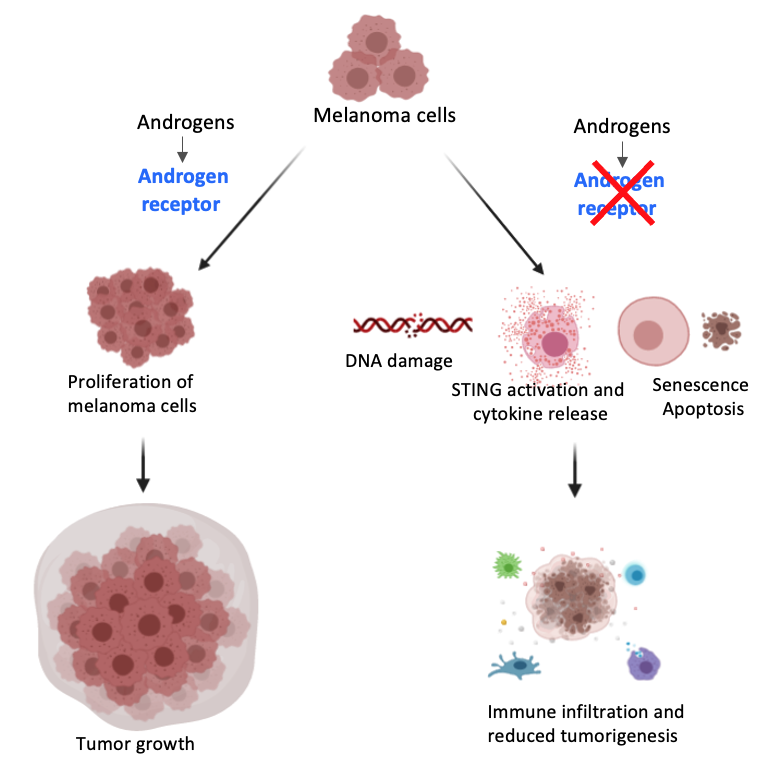Ma, Ghosh et al., Journal of Experimental Medicine, 2020 (https://doi.org/10.1084/jem.20201137)
Melanoma is the fifth most common tumor in the world. As with many other types of cancer, women have a better outcome than men. Differential levels of male sex hormones, androgens, are one of the possible explanations. A new study conducted in our laboratory reveals that removing the communication between these hormones and their receptors, by both genetic and pharmacological approaches, has a beneficial effect: melanoma cells proliferation is hampered and and the immune system is activated to fight the tumor. The findings and the clinical perspectives that they imply may be beneficial for all, including women, in whom androgen receptors are less active.

• Genetic silencing or chemical inhibition of AR induces senescence of melanoma cells.
• AR loss/inhibition causes spontaneous DNA damage and activates the STING pathway.
• Targeting AR in vivo induces immune cell infiltration and reduces melanoma tumorigenesis.
